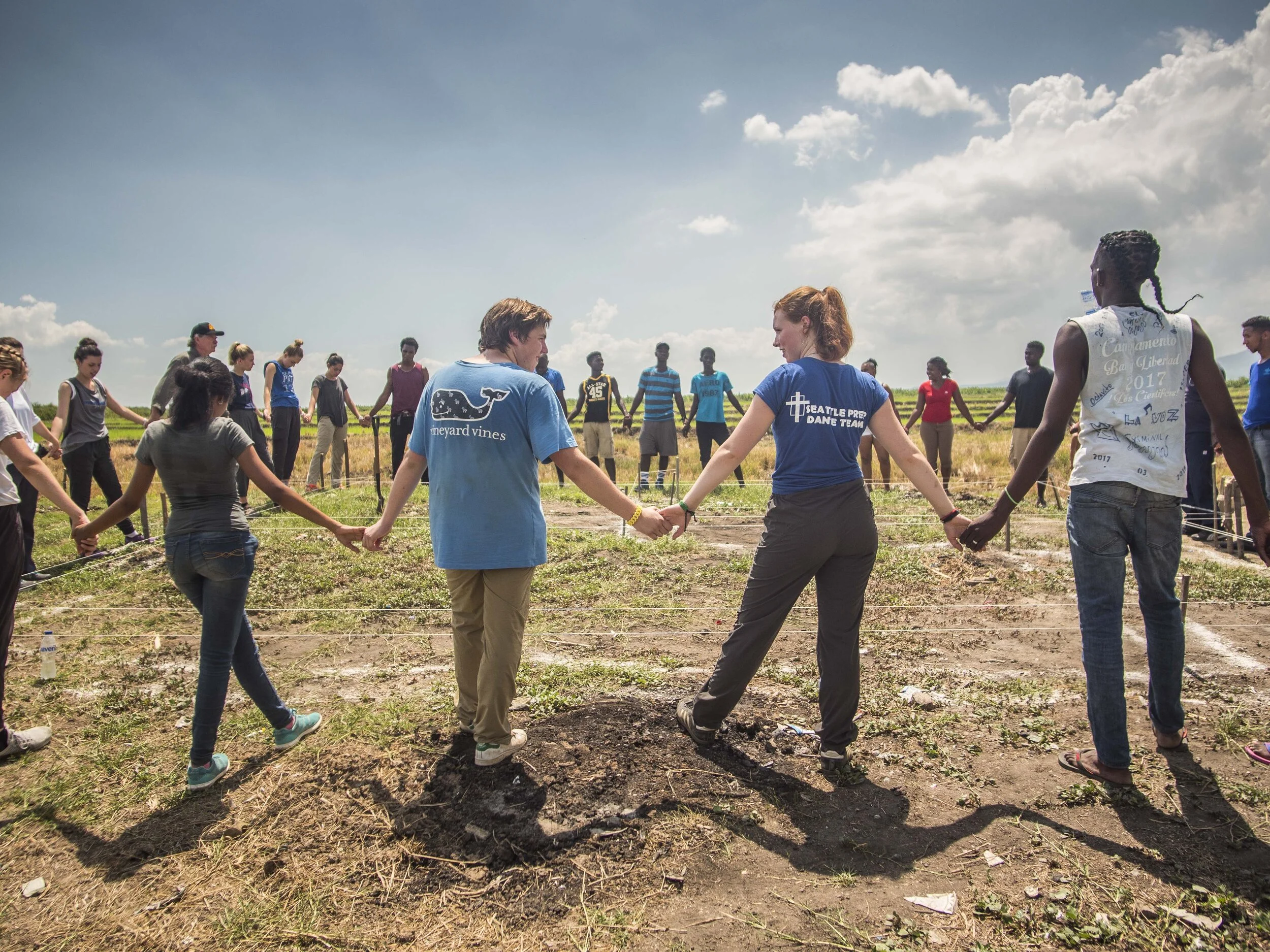Our Story.
A Little story about how we began
The roots of EAB’s work stretch back to 1997, when Paul Burson, then director of Creighton University’s Semestre Dominicano program in the DR, hired John McLaughlin to assist him. In his first year in the DR, John met two extraordinary Dominicans who opened their homes and families to him, and invited him to help them build a better future in their communities.
William “Papito” Poleyo Jose, of Batey Libertad, and Felicia Puntiel Pichardo, of Cadillo, had both been trained as health promoters in Creighton’s ILAC program, but yearned to work beyond the program’s limited scope. Over Christmas 1997, at Papito’s behest, John asked his parents and grandparents to loan him $400 to begin a latrine-building program in Batey Libertad, where over 900 people lived without access to sanitation. They did, and in January 1998, the project began by building two latrines which provided sanitation services to four families. It grew slowly: John continued to ask family and friends for funding, and Papito continued to organize the community to identify the families most in need, and provide the labor for the constructions. Over the course of nearly two years, the project, called Sante se Lavi (Kreyol for “Health is Life”) provided more latrines, as well as community showers, trees, and drainage infrastructure. During this time, planning for a similar project in Felicia’s community of Cadillo began… but it would take a different shape.
In the summer of 1999, John invited a group of students and faculty from Gonzaga College High School to participate in a service-learning program in these communities. The program, later called the Pentecost Project, was based in relationship: the real, human encounter with the poor and suffering. It allowed the students to work on development projects– latrines, houses, school buildings, and a community clinic– designed by Papito, Fella, and other community leaders, while building solidarity with the beneficiaries. The following year, the program expanded to include more schools, and has continued since.
In 2000, Jon Bargen, a former Semestre Dominicano student, was hired as Paul’s assistant, and at Papito’s invitation began to work with leaders in Batey Libertad on the formation of a scholarship program. The Batey Educational and Empowerment Fund (BEEF) began with 17 high school and middle school students, providing financial assistance with school uniforms, textbooks and supplies, as well as supporting literacy classes for children and adults. Financial support came from families and individuals in the US, with whom letters and photos were exchanged. From the beginning, Papito insisted that the program have a post-secondary goal: only with a professional degree could a young Dominican hope to break free of the cycle of poverty and dependence within which so many Dominican adults are mired.
In 2003, these various projects integrated and became incorporated as a 501(c)3 organization called Education Across Borders. (Many Semestre Dominicano students aided in this process and sat on the organization’s original board.) This integration has allowed EAB to have a holistic focus and approach: alleviating immediate suffering through housing and health care, while addressing long-term structural injustices through education. Ultimately, we hope that our Dominican scholarship students, once they are professionals, will be the next builders of houses, latrines, parks, and clinics in their communities. And we hope that the North American students who complete our immersion program– inspired by these loving, hard-working Dominicans– will dedicate their lives to the cause of justice. Both in the DR and the US, we are helping to create a culture of service, transforming communities through relationship.










